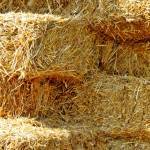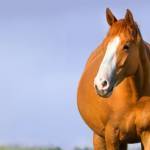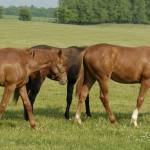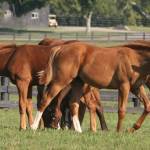Feed Management for Donkeys and Mules

An article published in Equine Veterinary Education pointed out that donkeys don’t require the same level of nutrition that horses need. Because donkeys evolved as browsers (eating shrubs and woody vegetation) as well as grazers (eating mainly grass and legumes), their digestive systems are able to handle highly fibrous forage that is lower in nutritional quality than what is required by horses.
Mules share some of the nutritional pattern inherited from their donkey parents. As a rule, both donkeys and mules have significantly lower energy and protein needs when compared with horses. Feed management for these animals should be based on moderate-quality forage and hay, which will usually be sufficient for the majority of donkeys and mules, especially if they are performing little or no work.
Except for those on an active exercise(opens new window) schedule, most donkeys and mules should be given only very small portions of grain, and most do not need any concentrate feeding at all. Because donkeys and mules tend to gain weight easily and are prone to obesity and related disorders, owners may also need to restrict access to pasture. Use of grazing muzzles, dry lots, and periods of time in a stall can help to keep these equines from becoming too heavy.








